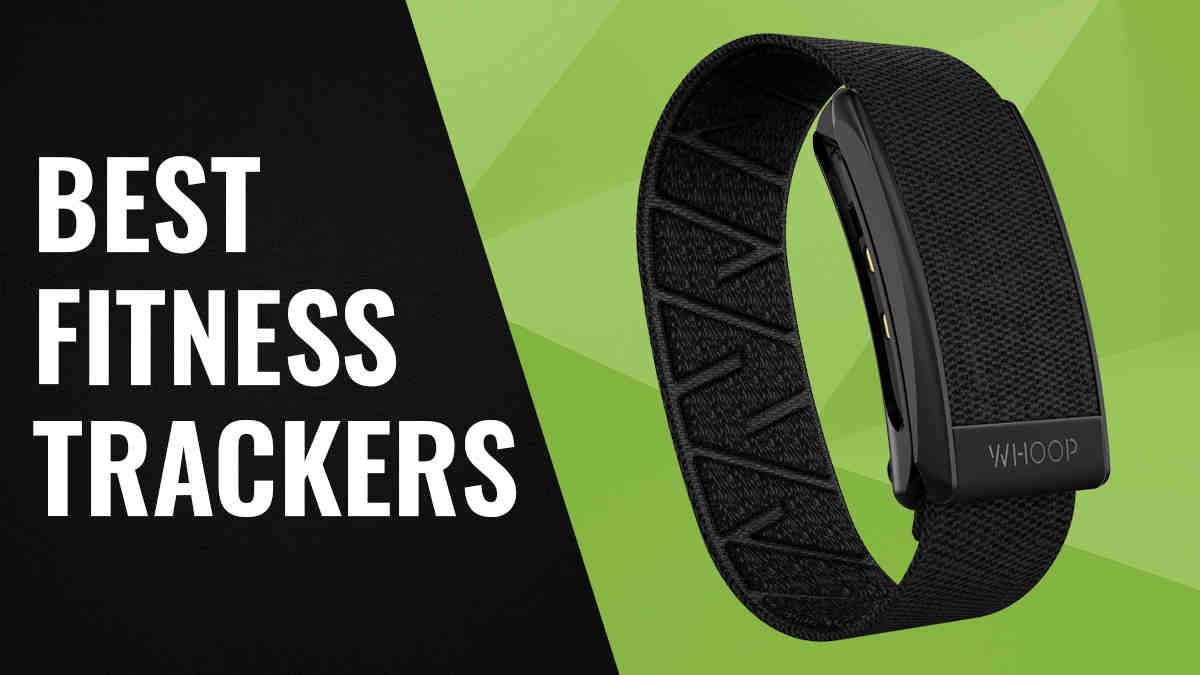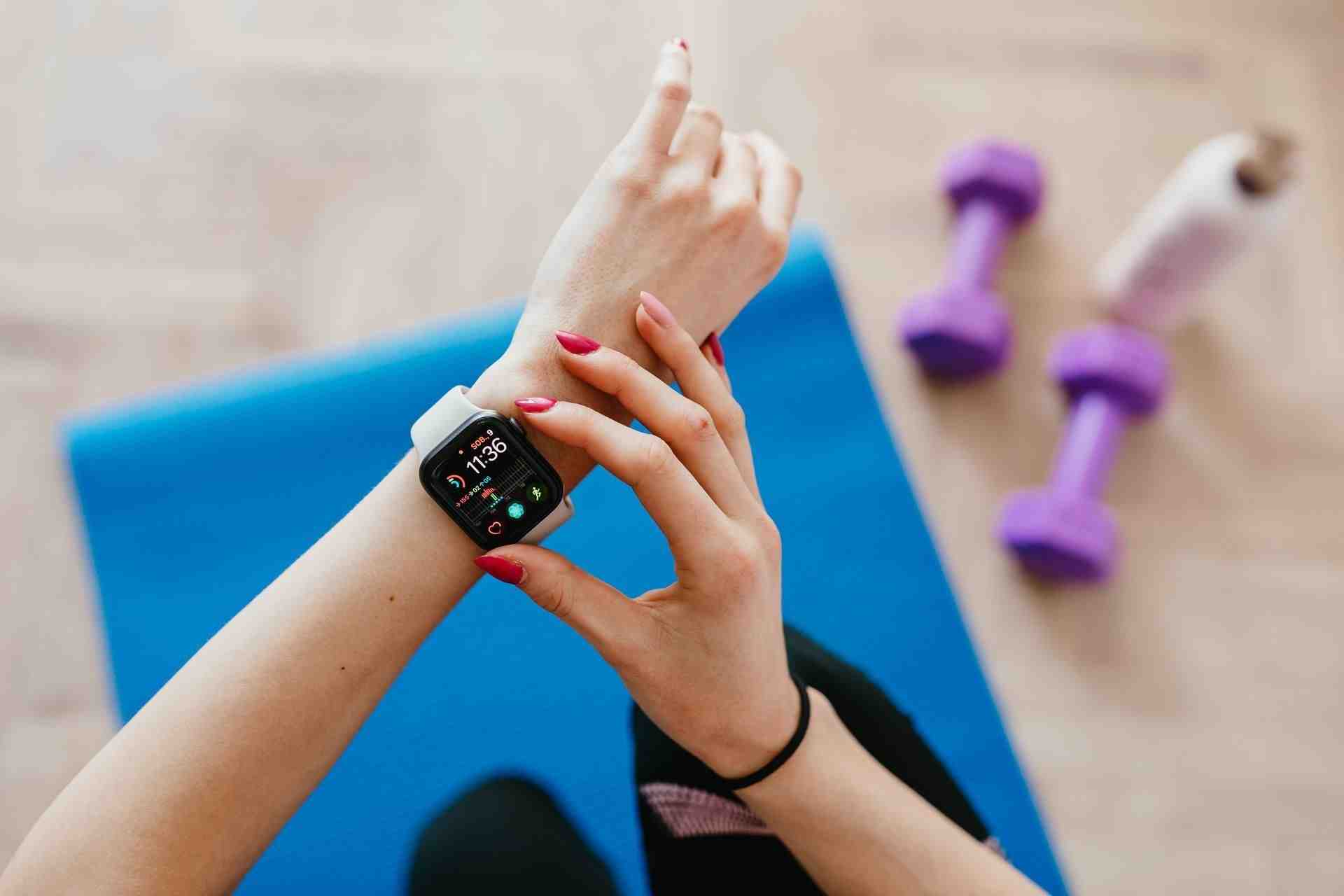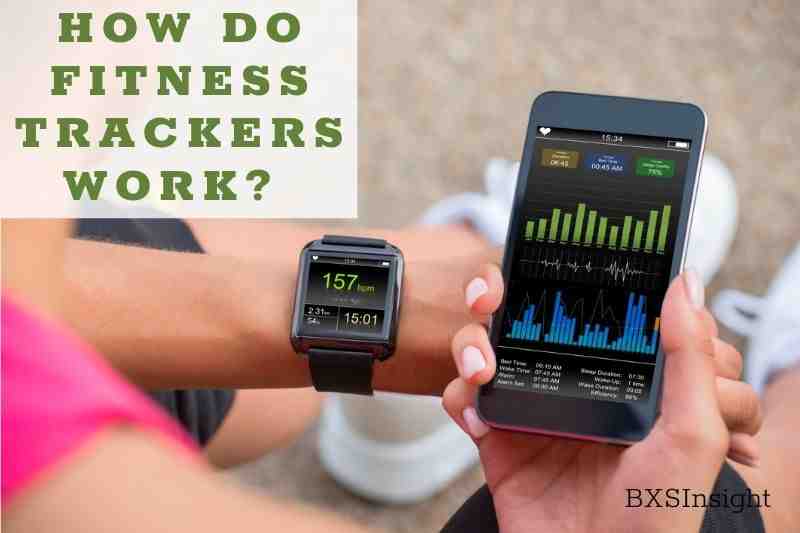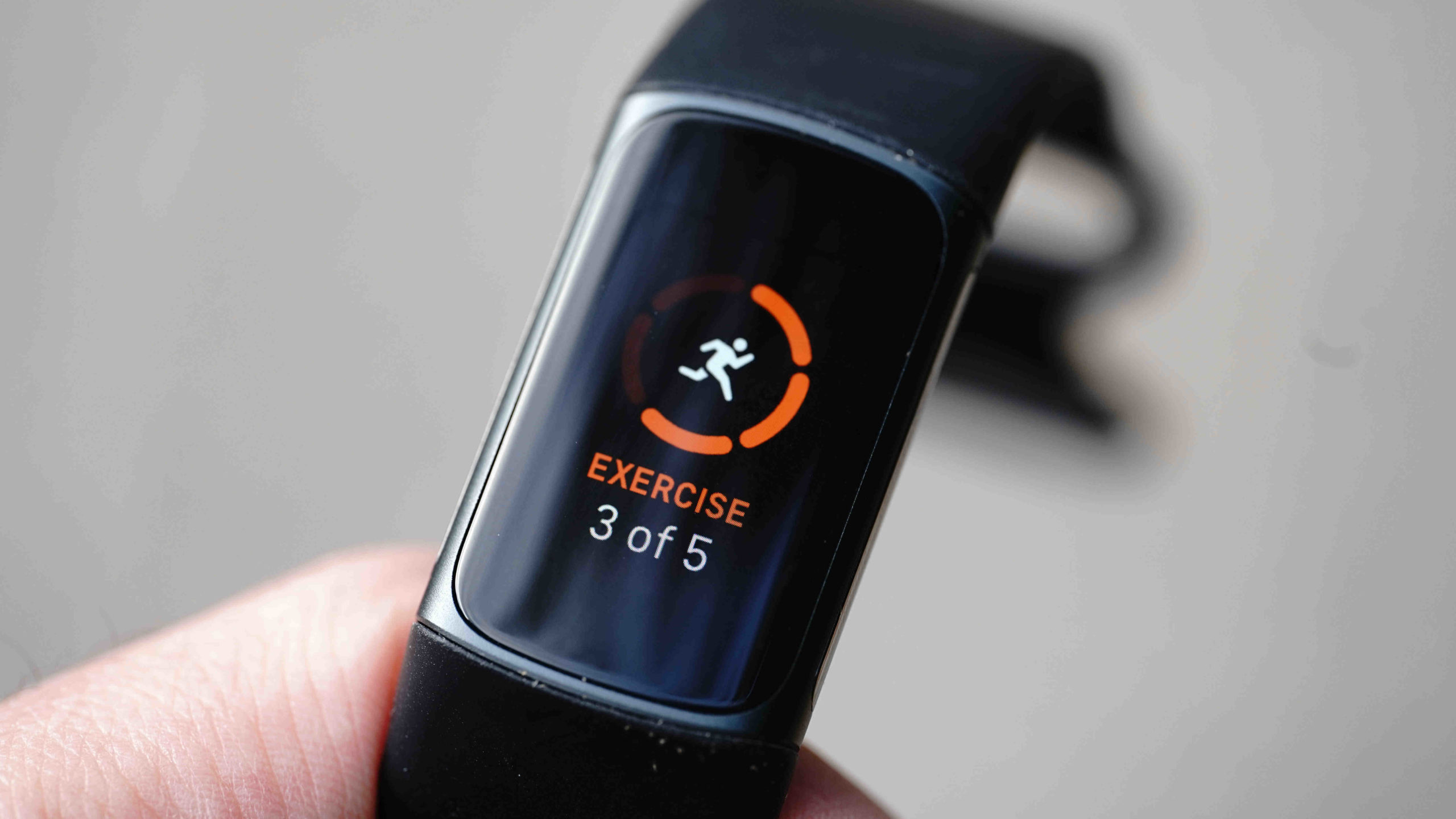The fitness tracker is designed to keep track of your health and exercise. The smartwatch also tracks your fitness, but also keeps you connected by providing notifications and updates on your wrist. These two elements overlap to a great extent.
Which is better smart band or smartwatch?

Smartwatches are primarily an extension of smartbands with a larger screen that even lets you reject calls and other pluses over smartbands. / But smartwatches tend to be more expensive than smartbands. The fitness wristband market is dominated by brands such as Xiaomi, Honor and even Fitbit.
Is a smart band a watch? Smart bands or smart bracelets are quickly replacing the traditional wristwatch. The reason is simple, if you have a pocket-friendly wristband that keeps you informed of the time and tracks your fitness, then you would go for it too. Most smart bands are supported by a dedicated application on the phone.
Which smart band is best?
The best fitness monitors you can buy today
- Fitbit Charge 5. The best fitness tracker overall. …
- Amazfit Band 5. The best cheap fitness tracker. …
- Fitbit’s sense. The best smartwatch for fitness tracking. …
- Garmin Forerunner 255. The best fitness tracker for runners. …
- Garmin Venu 2 Plus. …
- Samsung Galaxy Watch 4. …
- Whoop 4.0. …
- Fitbit Inspire 2.
Which is best band or smartwatch?
The fitness wristband market is dominated by brands such as Xiaomi, Honor and even Fitbit. Xiaomi’s Mi Band 6 is a bestseller. Honor bands are also credited with their accuracy. Fitbit smart bands offer a ton of features and are highly accurate, but are more expensive than the other two brands on the market.
What is the difference between smartwatch and fitness band?
What’s the difference between a smartwatch and a fitness tracker? The fitness tracker is designed to keep track of your health and exercise. The smartwatch also tracks your fitness, but also keeps you connected by providing notifications and updates on your wrist. These two elements overlap to a great extent.
Which is best fitness band or smart watch?
Overall, fitness monitors focus more on health and activity monitoring than smart notifications – their smaller screens aren’t conducive to reading and responding to messages like larger watch screens.
What is the difference between a smartwatch and a smart bracelet?
Some call them Smart Bracelet, others call them Smart Fitness trackers. That’s because smartbands are fitness-focused, while smartwatches are a complete package – fitness tracking, communication, fashion, and works like a phone on your wrist.
Is Smart Band useful?
A fitness tracker can help. Research shows that consistently using an activity tracker – a device that tracks your movement like a traditional pedometer or other wearable device, or a smartphone app – can increase your steps per day by more than a mile, especially if you set a smart daily goal.
How accurate is smart band?
A 2019 study (opens in a new tab) by scientists at Yale’s nursing and medical schools found that when fitness monitors record sleep and wake times, they are only 78% accurate.
Why should I buy smart band?
The smartwatch will be able to show you detailed notifications, will allow you to respond to notifications via the watch, and will also include support for tracking multiple training modes such as running, cycling and even swimming. Smartwatches also have app support just like smartphones.
Why are fitness trackers so popular?
The main reason people invest in fitness trackers is to motivate them to be active or stay active. A 2015 study in the American Journal of Preventive Medicine (opens in a new tab) found participants wore Fitbit for over an hour each week.
Why do fitness monitors do more harm than good? Doctors say heart rate technology like Garmin’s Body Battery can be cause for concern. “When patients are nervous or anxious, they sometimes look at the watch for a response, which makes them more anxious, which in turn increases the body’s adrenaline levels and heart rate even higher,” he said.
Are fitness trackers worthwhile?
Fitness monitors can tell you how many calories you burn, how many steps you take, how far you run, how you sleep at night and much more. Just be aware that the numbers they provide, which may vary in accuracy, are no substitute for the overall health assessment you will get from your doctor.
What is the point of a fitness tracker?
The fitness tracker allows you to monitor and record your heart rate, calories burned and the number of steps. Self-tracking helps you stick to a healthier diet, exercise more, and sleep better. Regular use of your fitness tracker speeds up your daily workouts and makes them achievable.
What are the cons of a fitness tracker?
While fitness monitors have their advantages, some have quite a few disadvantages as well.
- Expense. …
- Fitness monitors collect and store data about your health. …
- Fitness monitors may provide inaccurate results. …
- Fitness monitors can lead to an obsession with numbers.
When did fitness trackers become popular?
Wearable devices such as Fitbit, Nike, and Google Glass appeared in 2006-2013. Trackers started gaining popularity in 2013-2014.
When did fitness tracker come out?
Fitness monitors as we know them today first appeared in 1965 with Manpo-kei, which translates to “10,000 meter steps” and was invented by Dr. Yoshiro Hatano.
Are fitness trackers popular?
Fitness monitors have become extremely popular and usable among the general public. These devices track and monitor physical and fitness activity such as steps taken, calories burned and consumed, heart rate, distance traveled, sleep time and breathing.
Why are fitness trackers so important?
A fitness tracker can help. Research shows that consistently using an activity tracker – a device that tracks your movement like a traditional pedometer or other wearable device, or a smartphone app – can increase your steps per day by more than a mile, especially if you set a smart daily goal.
What do people want from a fitness tracker?
Fitness monitors and smartwatches are popular tools for detailed daily activity and health data. These gadgets provide logs of various metrics such as daily step count, heart rate, sleep amount, sleep quality, active minutes and more.
How do fitness trackers motivate people?
Daily Motivation Monitor can show calories burned, steps taken and active time. They can also remind you when you are not getting this activity. This visual representation of your progress can help you push harder, leading you to the next item on our list.
Are fitness trackers worthwhile?

Fitness monitors can tell you how many calories you burn, how many steps you take, how far you run, how you sleep at night and much more. Just be aware that the numbers they provide, which may vary in accuracy, are no substitute for the overall health assessment you will get from your doctor.
What are the disadvantages of a fitness tracker? While fitness monitors have their advantages, some have quite a few disadvantages as well.
- Expense. …
- Fitness monitors collect and store data about your health. …
- Fitness monitors may provide inaccurate results. …
- Fitness monitors can lead to an obsession with numbers.
What is the point of a fitness tracker?
The fitness tracker allows you to monitor and record your heart rate, calories burned and the number of steps. Self-tracking helps you stick to a healthier diet, exercise more, and sleep better. Regular use of your fitness tracker speeds up your daily workouts and makes them achievable.
Is it worth having a fitness tracker?
A fitness tracker can help. Research shows that consistently using an activity tracker – a device that tracks your movement like a traditional pedometer or other wearable device, or a smartphone app – can increase your steps per day by more than a mile, especially if you set a smart daily goal.
Are fitness trackers really accurate?
Trackers assessed against the 2019 report in the International Journal of Environmental Research (opens in a new tab) and public health were found to outperform by more than 10% when measuring TEE.
Are fitness trackers accurate for calories burned?
“Research shows that fitness monitors aren’t exactly right for measuring calories,” reports The Guardian. Independent analysis of a number of leading brands found that they were all susceptible to inaccurate recording of energy expenditure.
Can you trust fitness trackers?
A 2019 study (opens in a new tab) by scientists at Yale’s nursing and medical schools found that when fitness monitors record sleep and wake times, they are only 78% accurate.
Are Fitbits good for anxiety?

In one study from the University of Copenhagen, researchers found that activity trackers can be reassuring at times – for example, telling a user that they’re exercising enough or definitely not having a heart attack – but it can also potentially trigger new anxieties.
Are Fitbits Good for Mental Health? Fitness monitoring devices can complement behavioral activation (BA) therapy to improve the physical activity and mental health of patients with depression. Objectives To understand patients ‘perceived benefits of Fitbit and to explore topics related to their patients’ experiences.
Can Fitbit detect stress?
Stress management score. Your stress management score in the Fitbit app can help you see how your body reacts to stress based on your heart rate, sleep, and activity level data. You can also reflect on how stressed you are to see links between how you feel and the outcome.
Can Fitbits help with anxiety?
Use Fitbit to understand your stress and manage its impact on your well-being by adjusting your activity, improving your sleep, or practicing mindfulness. See your body’s response to stress with the innovative multi-path sensor. It detects small electrical changes called electrodermal activity (EDA) reactions on the skin.
Which Fitbit is best for anxiety?
The new Fitbit Luxe will perform the usual fitness tracker tasks such as step counting and heart rate tracking, but is also designed to give users greater insight into how stress and fatigue can affect their physical and mental health.
How does Fitbit track stress management?
Fitbit says electrodermal activity, or EDA, as measured by electrical impulses in sweat, is a reliable indicator of stress. You measure the EDA by tapping to take an EDA scan and placing your hand on the metal frame. Sense will measure how many EDA responses you get within two minutes.
Can Fitbits help with panic attacks?
Health apps and fitness trackers can help shape a healthy lifestyle, but they can also increase feelings of anxiety, according to a new study. The study analyzes the experiences of 27 heart patients who used Fitbit fitness watches to measure sleep, heart rate and exercise.
What do Fitbits actually do?

Fitbit was originally designed as step tracking, and all Fitbit devices still offer step tracking. But these small, wrist-worn devices also offer distance tracking, heart rate monitoring, sleep tracking, GPS, and other useful features.
What exactly does Fitbit do? In short, Fitbit is a fitness tracker that records information about your daily habits and exercise. The exact functions depend on the model, but most can track your steps, your heart rate, the number of stairs you’ve climbed, and more.
Do Fitbit watches really work?
According to a study on the accuracy of Fitbit published by NCBI, researchers found that Fitbit devices were “acceptably accurate” in counting steps approximately 50% of the time. In addition, they found that the accuracy increases depending on where the device is worn: with jogging, the position of the wrist was most accurate.
Are Fitbits actually accurate?
Quick answer: definitely not 100 percent accurate. Slightly longer answer: it’s not perfect, but no calorie counter is, and the Fitbit is probably as good as any. A 2017 study found that the Fitbit Surge’s average error is 27 percent when counting calories burned.
What does a Fitbit do exactly?
For starters, Fitbit is a cool company that makes fitness tech products. They have several product models, each with a slightly different list of features, but the main focus is step tracking and activity tracking. In other words, it’s a way to measure your physical activity each day.
Is a Fitbit considered a smartwatch?
Fitbit (stylized as fitbit) is an American consumer electronics and fitness company. It manufactures wireless wearable technology, fitness monitors and activity trackers such as smartwatches, pedometers and heart rate, sleep quality and stairs climb monitors, as well as related software.
What is considered a smartwatch? A smartwatch is a wearable computer device that closely resembles a wristwatch or other timing device. In addition to indicating the time, many smartwatches support Bluetooth technology. The watch becomes a wireless Bluetooth adapter that can extend the capabilities of the user’s smartphone to the watch.
What is the difference between a smart watch and a Fitbit?
A fitness tracker is a wristband with sensors that transmit data to a smartphone, while a smartwatch has a screen that is essentially an extension of the smartphone, a wrist-tied device that allows you to check texts, emails, and even social media.
What does an Apple Watch do that a Fitbit doesn t?
Apple Watch offers notifications, alarms, timers, Siri, and a huge app store. Fitbit, on the other hand, has a few basic services like notification mirroring and a smaller app offering. You can use your watch to make payments via Apple Pay, while only a few Fitbit models allow you to pay via Fitbit Pay.
What is the difference between smartwatch and fitness watch?
A fitness band is a band with sensors that transmit data to the smartphone; The smartwatch, meanwhile, was essentially an extension to your smartphone, a wrist-tied display that allowed you to check texts, emails, and social media.
Are fitness trackers considered smart watches?
Simply put, the smartwatch does more. Apps, notifications, music controls, microphones for phone calls, speakers, NFC, cellular connectivity, GPS and touchscreens. There are fitness trackers that have some of these features as well, but any device that does all of these things is considered a smartwatch.
Is a fitness tracker a smart watch?
What’s the difference between a smartwatch and a fitness tracker? The fitness tracker is designed to keep track of your health and exercise. The smartwatch also tracks your fitness, but also keeps you connected by providing notifications and updates on your wrist. These two elements overlap to a great extent.
Do Fitbits count as smart watches?
Fitbit Sense provides the basics, but it’s clear some features take more work. Fitbit Sense is Fitbit’s flagship health-driven smartwatch. It has built-in ECG, GPS and heart rate sensors, as well as the new EDA Scan application that measures your body’s stress levels.
What is a Fitbit classified as?
Fitbit is a popular brand of wearable technology, mostly made up of activity trackers. These devices are designed to help you improve your fitness and healthy lifestyle.
Is a Fitbit classed as a smartwatch?
Smartwatches from brands such as Nokia, Garmin, Apple, Fitbit and Samsung offer accurate heart rate monitoring, and will let you know over time about your resting heart rate as well as how you are doing in different heart rate zones.
What are Fitbit devices called?
| Model | Type | GPS |
|---|---|---|
| Force | Cuff | |
| Fee | Cuff | |
| HR fee | Cuff | |
| Increase | Smart watch | Built-in GPS |